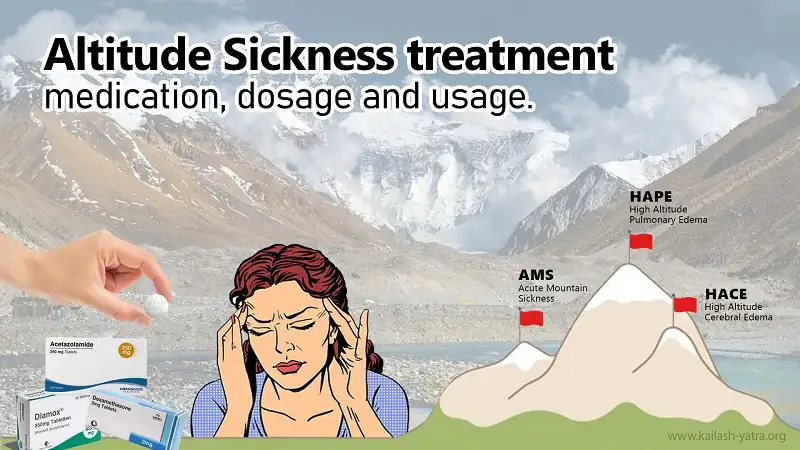The Kankakee Mugshots Zone has become a widely recognized platform for accessing arrest records and mugshots within Kankakee County, Illinois. By aggregating publicly available information, it aims to inform the community about local crime and law enforcement activities. However, platforms like this one bring both benefits and controversies, ranging from their role in public safety to concerns about privacy and misuse.
In this article, we will explore the purpose of the Kankakee Mugshots Zone, its impact on the community, ethical debates surrounding its use, and its potential future in balancing public information and individual rights.
1. Understanding Kankakee Mugshots Zone
The Kankakee Mugshots Zone is an online repository that collects and displays mugshots of individuals arrested in Kankakee County. It operates by gathering data from law enforcement agencies and making it accessible to the public in compliance with the Freedom of Information Act (FOIA).
What Information is Included?
The platform typically includes:
- Mugshots of arrested individuals.
- Name, age, and gender of the person.
- Arrest date and the charges filed.
- Information on the law enforcement agency involved.
This platform serves as a one-stop hub for those seeking details about arrests in the area, contributing to public awareness and transparency.
2. The Purpose of Kankakee Mugshots Zone
The Kankakee Mugshots Zone was created with several objectives in mind, primarily focusing on public safety and transparency.
a) Promoting Public Awareness
The platform ensures that citizens are informed about arrests and crime trends in their area. Residents can:
- Identify offenders in their neighborhood.
- Stay vigilant regarding potential safety risks.
b) Enhancing Transparency
By making mugshots and arrest records publicly accessible, the platform holds law enforcement accountable and demonstrates the justice system’s actions.
c) Assisting Local Stakeholders
The information can also assist employers, landlords, and community members in making informed decisions regarding individuals with criminal histories. However, this usage is often criticized due to ethical concerns.
3. How Does Kankakee Mugshots Zone Work?
The operation of the Kankakee Mugshots Zone is straightforward, relying on publicly accessible arrest records. Here’s a breakdown of how it functions:
Data Collection
- The platform collects mugshots and related arrest data from local police departments, the sheriff’s office, and other law enforcement agencies in Kankakee County.
- This information is then compiled into a searchable database.
Accessibility
Users can:
- Search for mugshots by name, arrest date, or charges.
- Browse recent arrests to monitor ongoing criminal activities in the area.
Regular Updates
The platform is frequently updated to include the most recent arrests, ensuring that the information is current and relevant.
4. The Benefits of Kankakee Mugshots Zone
The Kankakee Mugshots Zone provides several advantages to both the public and law enforcement agencies.
a) Community Safety
By offering information about recent arrests, the platform empowers residents to protect themselves and their families. For example:
- Citizens can identify repeat offenders.
- Neighborhood watch groups can use the information to organize preventive measures.
b) Accountability in Law Enforcement
The platform encourages law enforcement to act responsibly by making their actions visible to the public. Transparency fosters trust between the community and law enforcement agencies.
c) Crime Pattern Analysis
The platform serves as a useful tool for analyzing local crime patterns. For example:
- Residents can observe an increase or decrease in specific types of crimes.
- Law enforcement can use the data to prioritize resources for high-crime areas.
5. Ethical Concerns Surrounding Kankakee Mugshots Zone
While the Kankakee Mugshots Zone offers many benefits, it also raises serious ethical questions and concerns.
a) Privacy Issues
Publishing mugshots online can have long-term repercussions for individuals, even if they are later acquitted or the charges are dismissed. The mugshot remains visible, leading to potential stigma and discrimination.
b) Presumption of Guilt
Although the law presumes individuals are innocent until proven guilty, public access to mugshots often leads to social judgments. This can unfairly tarnish reputations before a trial is conducted.
c) Exploitation by Third Parties
Some mugshot platforms or similar services charge individuals to remove their images, creating a system that monetizes personal information.
6. The Impact on Arrested Individuals
For individuals whose mugshots are displayed on the Kankakee Mugshots Zone, the consequences can be significant. These include:
a) Social Stigma
Arrest records, even without convictions, can harm a person’s reputation in their community or workplace.
b) Employment Challenges
Many employers conduct online searches during the hiring process. A mugshot on the internet can lead to bias, even if the individual is not guilty.
c) Emotional and Mental Strain
The public display of arrests can cause stress and anxiety for individuals and their families, impacting mental health and social relationships.
7. The Role of Kankakee Mugshots Zone in the Justice System
The Kankakee Mugshots Zone functions as an extension of the justice system, offering insights into law enforcement activities. However, its role is often debated:
a) Supporting Law Enforcement
The platform aids in sharing arrest data with the public, ensuring that the justice system remains transparent.
b) Encouraging Public Participation
Residents can use the platform to report crimes or offer tips to law enforcement regarding ongoing investigations.
c) Creating Checks and Balances
By making arrests public, the platform ensures that law enforcement agencies remain accountable to their communities.
8. Controversies and Criticisms
The Kankakee Mugshots Zone has faced criticism from various quarters due to its potential misuse and ethical implications.
a) Lack of Context
The platform provides minimal context for arrests, often omitting critical details such as whether charges were dropped or convictions were made.
b) Financial Exploitation
Some similar platforms charge fees for removing mugshots, creating an exploitative cycle for individuals seeking to rebuild their reputations.
c) Disproportionate Impact on Vulnerable Groups
Mugshot platforms disproportionately affect marginalized communities, perpetuating systemic inequalities in how arrests are perceived and judged.
9. Legal Considerations for Kankakee Mugshots Zone
The Kankakee Mugshots Zone operates within legal frameworks, but several laws and regulations influence its operations:
a) Freedom of Information Act (FOIA)
Under FOIA, arrest records and mugshots are classified as public records, allowing platforms like Kankakee Mugshots Zone to access and share them.
b) Defamation Risks
If incorrect or outdated information is published, the platform could face legal action for defamation. However, disclaimers often protect them from liability.
c) The Right to Be Forgotten
Emerging laws in some states and countries allow individuals to request the removal of outdated or irrelevant information from public platforms, which could influence the future of mugshot websites.
10. Alternatives to Public Mugshot Platforms
Given the controversies surrounding platforms like Kankakee Mugshots Zone, some alternatives could better balance public interest with privacy rights:
a) Restricted Access
Restricting access to verified users, such as law enforcement or licensed investigators, could reduce misuse while maintaining transparency.
b) Automatic Record Updates
Platforms could implement systems to automatically remove or update mugshots once charges are dropped or cases are dismissed.
c) Community-Based Reporting
Encouraging community members to report suspicious activities directly to law enforcement could reduce the reliance on mugshot platforms for public safety.
11. The Future of Kankakee Mugshots Zone
As societal attitudes toward privacy and digital ethics evolve, the Kankakee Mugshots Zone may face significant changes. Potential developments include:
- Stronger Privacy Regulations: New laws could limit the public display of arrest records.
- Technological Advances: AI and automation could streamline the process of removing outdated records.
- Increased Public Awareness: Greater understanding of the platform’s ethical implications may lead to more informed debates about its role.
12. Conclusion
The Kankakee Mugshots Zone serves as a double-edged sword. While it promotes public safety and transparency, it also raises ethical concerns about privacy, fairness, and misuse. Striking a balance between public access to information and protecting individual rights will be crucial in shaping the future of such platforms.
As society continues to grapple with the implications of digital information sharing, platforms like Kankakee Mugshots Zone will need to adapt to meet the demands of accountability, fairness, and respect for privacy. Read More StarFame.




